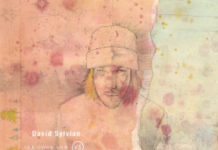As media is turning more and more digital, music consumption is going increasingly online. More and more people are turning to the internet for every kind of music content. Therein rests the opportunity for artists and enthusiasts to set up music blogs and showcase rich content based on generic and specific needs.
Once you’ve decided that you’ve got to start a music blog, you’ll have to ask some pertinent questions before you go about setting it up online. Such as, what is the target audience? What kind of content will you publish? How many website visitors are you expecting?
Now that your mind is set on it, here are the things that need to be kept in mind while finalizing, publishing and earning from your music blog.
(5 Things to Consider before Setting up Your Music Blog. Source: Unsplash)
1) Decide the purpose of your blog
First and foremost, ask yourself, why are you doing this? Is it to showcase your produced musical masterpieces? Is it to keep users abreast with the latest happenings in the music industry or to share your opinions about different artists across the globe?
Some of the common reasons are:
- Building your resume
- Honing your writing skills
- Building contacts with your favorite music stars
- Promote your work
- Tracking the latest music trends and hit lists.
- Making money out of it
2) Choose your music genre
It is very important to define your music genre so that you can connect directly to a specific target audience. Deciding upon your niche will help filter out what your blog is going to be all about. It is essential for it to have a genre and for that you have to hone your skills in that type of music as long as you plan to display your work on the blog. Some of the major music genres include: Pop, country, jazz, rock, R&B and soul, hip hop, jazz, electronic dance, blues, classic, opera, folk, heavy metal, Latin, reggae, etc.
Ensure that through your selected genre, you’re able to give real value to the visitors on the blog. Go check out if there are music blogs already online for the type of music you’re in for and see if your music blog can be more unique than others out there.
3) Decide your domain name and hosting partner
Once you’ve figured out what your blog will be all about and what type of content you’ll keep posting on it, you will have to choose a domain name and extension. You’d want to go for a .com extension so that it’s more familiar and easy to remember since that’s what usually people search for as well. Keep the domain name short, simple and avoid using complicated words in it. Say, your blog is about jazz music and you want to name it ‘jazzblog’ but you find that the name is already taken, then you can go for ‘thejazzblog’ or ‘jazzmusicblog’ whichever is available.
Selecting a web hosting solutions provider should be the next in things to keep in mind before starting a music website. A web host is a service that will park your site’s online files and data, making it visible to users on the internet. Depending on your needs, you can choose from a simple, free and ad-heavy web host or go for a comprehensive and flexible web hosting plan, something what Hosting Foundry offers to keep your music blog safe and secure on the internet. It is advisable that when you’re starting out, go for a WordPress-based blog that handles and showcases your basic content.
(5 Things to Consider before Setting up Your Music Blog. Source: Unsplash)
4) Choose a theme
Having a theme for your music blog will determine how your music blog looks on the internet. There are a variety of options to choose from when it comes to the type of template that will be used to display your music website. The free options may come with a few limitations and may not provide you full customization of the look and feel of the site. On the other hand, a paid theme can offer you more flexibility in terms of how you want your music blog to be visible.
While going for a good theme, check for how it will respond on mobile phone, tablets and other devices. Its design, speed, reviews and customer service features are something you’d want to look into before choosing the best theme.
5) Create pages and begin
Essential pages provide a structure to your website and these will be those web pages that won’t need constant updating or editing. Essential pages would include – About, Contact and Privacy Policy.
In the ‘About’ page, you can tell about your blog and what it actually is all about. Here you can also share about your background and your passion towards music so that it gives a sense of connection with your end user.
The ‘Contact’ or ‘Contact Us’ page should have all the necessary information about how the user can get in touch with you.
A ‘Privacy Policy’ page protects and warns users and readers from potential policy breaches. You can go and opt for more legal pages like the ‘Terms and Conditions’ page.
Depending on how interactive you want to be with your users, you can create a ‘submit your music’ page so that you create a platform for your users to cabinet their music on your blog.
With these things in order, begin blogging, churn out good and relevant content for your users and make the most of being a music blogger.






